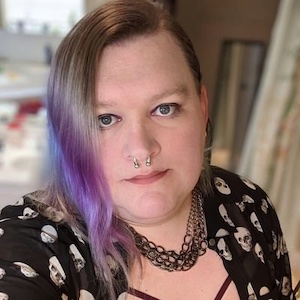To Reach Diversity, Focus on Equity
- Publish Date
- Authors
- River Lynn Bailey
The world of business has long talked about DEI: Diversity, Equity, and Inclusion. This is an acronym that many people know, and many companies have talked about even more in the last year.
Here at Test Double, though, we’re flipping the first two words. Instead of DEI, we will be working toward EDI.
Why change it, though? What’s so important about the order of these letters?
Equity first
According to the Center for Creative Leadership,
Elevating equity is critical because even in organizations that are both diverse and inclusive, individuals who come from different backgrounds can still run into policies, practices, or assumptions that prevent them from being fully engaged, supported, and able to reach their potential.
The difference may seem subtle, but it is critically important. Looking at diversity, or even inclusion, first can have unintended and potentially disastrous consequences. Policies and practices that don’t create equity run the risk of driving people away, or worse.
Diversity and inclusion
Inclusion brings everyone’s voice into the conversation, but it does not guarantee every voice is given the weight or consideration it deserves.
Say a company employs a trans woman of mixed racial heritage, with a backround including racial justice and LGBTQ liberation work, formal eduction and training in these areas, and lived experience to back her efforts. Her expertise and insight may be included in policy discussions directly affecting her and those she has worked to support. But if her input is dismissed or ignored, there is no equity in the inclusion of her voice.
And diversity? Rasool Berry said it best,
If you aim for justice & equity, you'll hit diversity.
— Rasool Berry (@rasoolberry) April 16, 2021
If you aim for "diversity," you'll hit tokenism & justification of the unjust status quo.
Equity means more than respect
In the above example, equity would start by having the multi-racial trans woman’s experiences and expertise given the level of respect and importance that they deserve. She should have a potentially significant influence over decisions that impact the most marginalized in the company. This would help to ensure policies and procedures move in the right direction, with the right checks in place. “Nothing about us, without us” as the saying goes.
The phrase “nothing about us, without us” means there should not be any legislation, policy or other decisions made without representation from the group directly impacted by these decisions. It was popularized in disability rights advocacy during the 1980’s in South Africa, and has been in perpetual use since then. More recently it has shown up in other forms of advocacy such as trans rights movements, and along other intersections such as health, education, gender equality, and more.
But equity goes beyond listening. This person’s emotional and psychological well-being would be prioritized with safety measures planned and in place ahead of time. Her time and expertise would be also compensated in a way that she has requested and agreed to. There are many other potential opportunities to bring true equity into the conversations and policy creation, as well.
Equity is not a one-size-fits-all ideal or checklist. It is a recognition of the need to create systems that prioritize the most vulnerable and care for them and their time appropriately.
Send the right message
By shifting our focus to equity first, Test Double is declaring our stance on all things EDI. We are saying to our coworkers, our colleagues, our job candidates, our clients, and the larger software development world that we know where to focus our efforts.
We will work to grow our company on equity, first. In doing so, we will create an environment that is inclusive. Diversity, then, is an outcome and not a goal in itself.
River Lynn Bailey
- Status
- Double Agent
- Code Name
- Agent 0069
- Location
- Waco, TX
